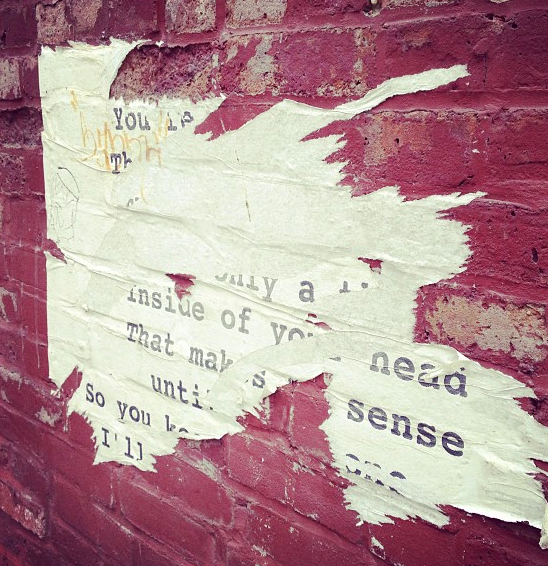
Draper, television mad man extraordinaire, made an entire career out of ethical lapses.
On the first episode of the show, he switched the dog tags of a dying soldier during the war and assumed that man’s identity back home. Then, for the remainder of the series, he lied his way to the top of the ad agency with numerous morally ambiguous business practices.
My favorite scene is when a coworker asked him the rhetorical question, how do you sleep at night?
Draper replied, on a bed made of money.
It’s not only my favorite moment in the series, but also my favorite example of how treachery can pay.
Don may be a fictional character, but make no mistake, he’s also a cultural mirror.
Look around. Open your news feed. Our society has reached a point where deceit and lying is unquestionably rewarded. The boundaries that used to define honesty and integrity have officially blurred into murky and easily justifiable shades of gray.
Politicians, athletes, businesspeople, religious leaders, public figures, media personalities, social media influencers, university administrators, even the guy who sets next to you at the office, many of them are completely full of shit.
Myself included, thank you very much.
Now, if you think this is just hyperbole and cynicism, you may be right. But let me ask you this.
Why is it, that every day we seem to read another story about these robber barons who followed this same narrative.
They were presented with an opportunity to be less than honest, crumbled in the face of temptation, committed some ethically or illegal act, apologized online at the behest of their publicist, and then went on to suffer zero consequences, get promoted and enjoy great material reward.
How is that the norm?
Rushkoff, the eminent media theorist, summarized it perfectly:
Even if they do deceive is, by the time a real truth has surfaced, the lie is buried so far down in the stream it doesn’t even matter anymore.
It makes you wonder. Is there really a higher level of moral carnage, or is there simply more coverage?
Hard to tell. Because multiple forces are at play. First, there’s the biology. It can be an evolutionarily advantageous act to be dishonest. Lying is a preprogrammed instinct to protect ourselves. It’s one of those adaptive functions that kept our species safe and allowed us to evolve.
Think about it. If the cost of being honest rises too high, and it’s between telling the truth and passing along your genes, then it’s pretty clear what the move is.
Second, there’s the actual lying party. Bloomberg’s legal reporter wrote this illuminating article explaining how not every person or organization has reputational capital that’s dependent on whether they tell the truth.
Turns out, certain parties add multiple zeros to almost every number, and treat that as a feature, not a bug. They have no economic incentive to tell the truth and keep their word. For many, their revenue is enhanced when they aren’t honest with customers. Their deception has fewer repercussions. The punishments for abusing trust are few and weak.
And so, why not lie? What’s the downside?
Lastly, there’s the public. That same reporter mentioned how our society has a shockingly high tolerance for broken promises. We may honor and celebrate honesty, but we don’t require it.
In fact, there are people and businesses that we actually expect to lie to us, and we’re perfectly fine with that. We don’t hold them to the same standard of integrity as we used to, since too many of them have fooled us int the past.
Treachery truly can pay. Doesn’t make it right, but it certainly makes it a more attractive option.
As someone who’s had integrity every day of his life and hasn’t made a dime, maybe being rich in dollars and poor in values wouldn’t be so bad.
LET ME ASK YA THIS…
Do you know the difference between the rules, and the rules about the rules?
